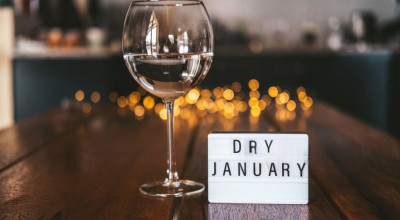How to Know When Someone Has Relapsed with Alcohol
October 13th, 2021
One fact that is sung true throughout the addiction recovery community is that relapse is simply a part of the process. Of course, this isn’t to say that every person who overcomes addiction will at one point relapse. Noone’s recovery journey is identical and everyone is on their own path. However, what most people mean when they say relapse is a part of recovery is simply that it is very common to relapse once or even more than once before getting back onto the ultimate path of true sobriety. The relapse rate is something between 40-60% for those in recovery.
Relapse is something that isn’t only difficult for the addict, but also for those around them. Recovery in general is not an easy road for anyone involved. There is so much to be learned and there will be struggles for all involved. This includes the relapse. A huge fear for anyone who has a loved one starting on their road to recovery is the thought of a relapse. Knowing how common they are, it is easy to live with a certain level of anxiety about if or even when it may happen to your loved one on their journey. Many loved ones walk on eggshells for a while once their addicted loved one is out of rehab and attempting to return to a new normal way of life. Therefore, once you try to lighten up and begin to really trust your loved one is on the right path, the right path being the path of sobriety, it can be even harder to spot signs of relapse.
Specifically with relapsing from alcohol addiction, there are a few signs that you can keep a lookout for in order to know when it may be time to step back in and say something. Experts have identified three common stages of relapse. These are emotional, mental and physical.
An emotional relapse is the earliest sign of a relapse. In this period, your loved one may not have turned to alcohol, but they are going through some emotional experiences that may be pushing them that way. This would be a season of immense stress, anxiety and even depression and can be caused by nearly anything in their lives - not even necessarily related to their addiction or their recovery. This puts them at risk for relapse because they likely dealt with these uncomfortable feelings by drinking alcohol in the past. Some behaviors to be aware of in this period of time are isolation, mood swings or mood changes, and a possible lack of or decline in self care.
The next phase is the mental relapse. If you don’t get help during emotional relapse, it could progress to mental relapse. During a mental relapse on alcohol, the addiction is not using it, but it might preoccupy their thoughts. They may be thinking about how good it could feel to relieve difficult emotions, boredom, or stress with a drink. At first, they might try to convince themselves that they wouldn’t actually do it, but toward the end of a mental relapse, substance abuse becomes almost inevitable. Signs of mental relapse include cravings, justifying their consequences, romanticizing the idea of drinking or using drugs, planning a relapse, blackmailing yourself or others to use, etc.
A physical relapse is the final phase, as it means the addiction has won and the individual has indeed begun drinking again. One important thing to note here is the difference between a slip and a full on relapse. A slip is usually a one-time event where you immediately feel regret and want to get back on track right away. A relapse is a longer, more intentional return to alcohol abuse.
In addition to keeping an eye out for these three phases of a relapse, there are some warning signs and behaviors that you can be aware of.
- Changes in physical appearance.
- Theft or asking to borrow money.
- Impulsiveness.
- Sudden mood changes.
- Missing meetings, therapy sessions, etc.
- Returning to old and unhealthy relationships that existed pre-recovery.
Ultimately, if you feel confident that your loved one has relapsed, it’s important to speak with them in a calm manner and try to get them back into treatment before things get out of hand. It’s also important to provide extra support if you are aware that they are under more stress lately or know of any possibly upsetting life events taking place.
Awareness is key and support is incredibly important. If you or a loved one are in need of help with alcohol addiction, reach out to our team here at Windmill Wellness Ranch. We’re always available and want to help provide a safe place for you or a loved one to find sobriety.


